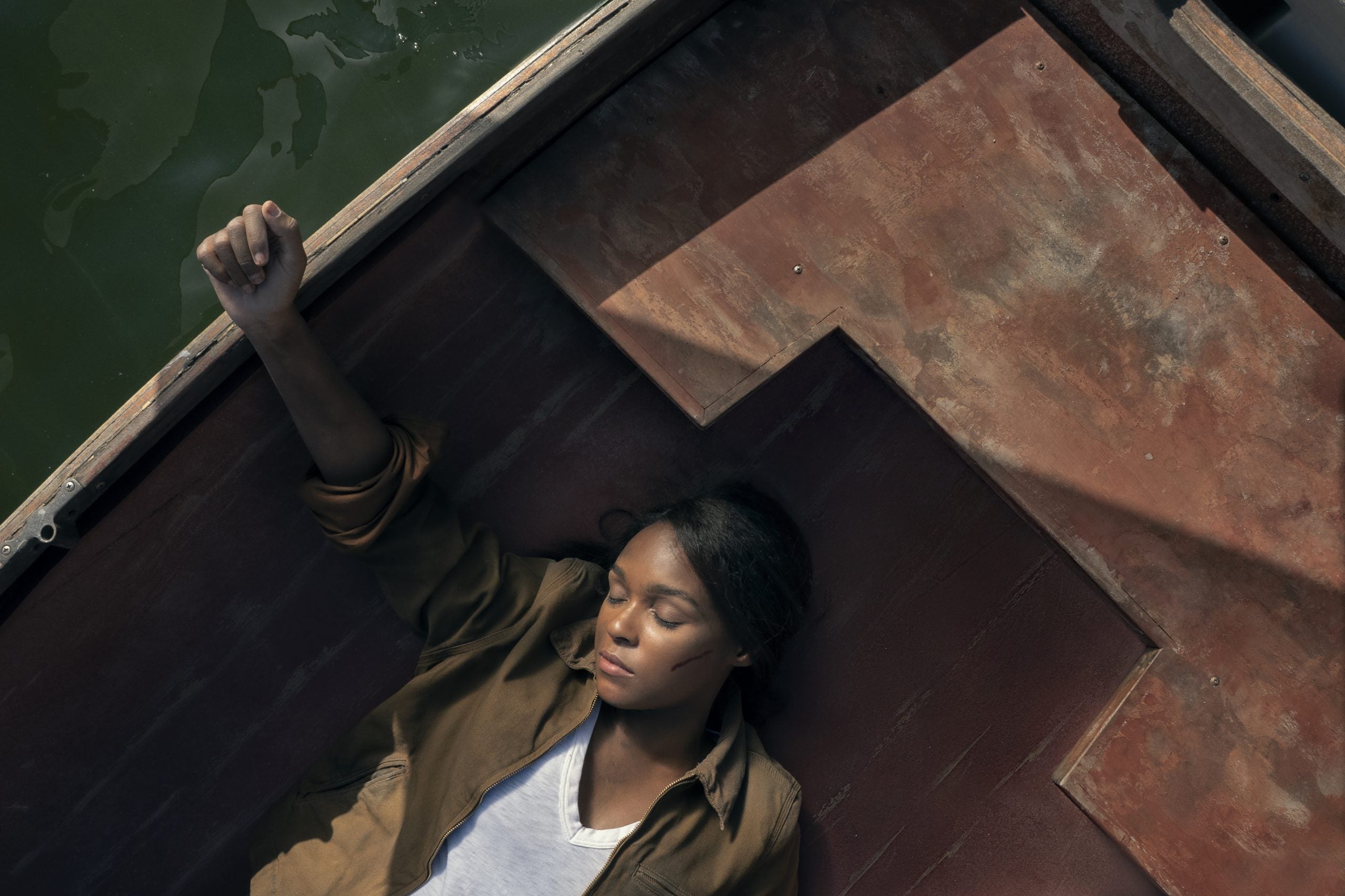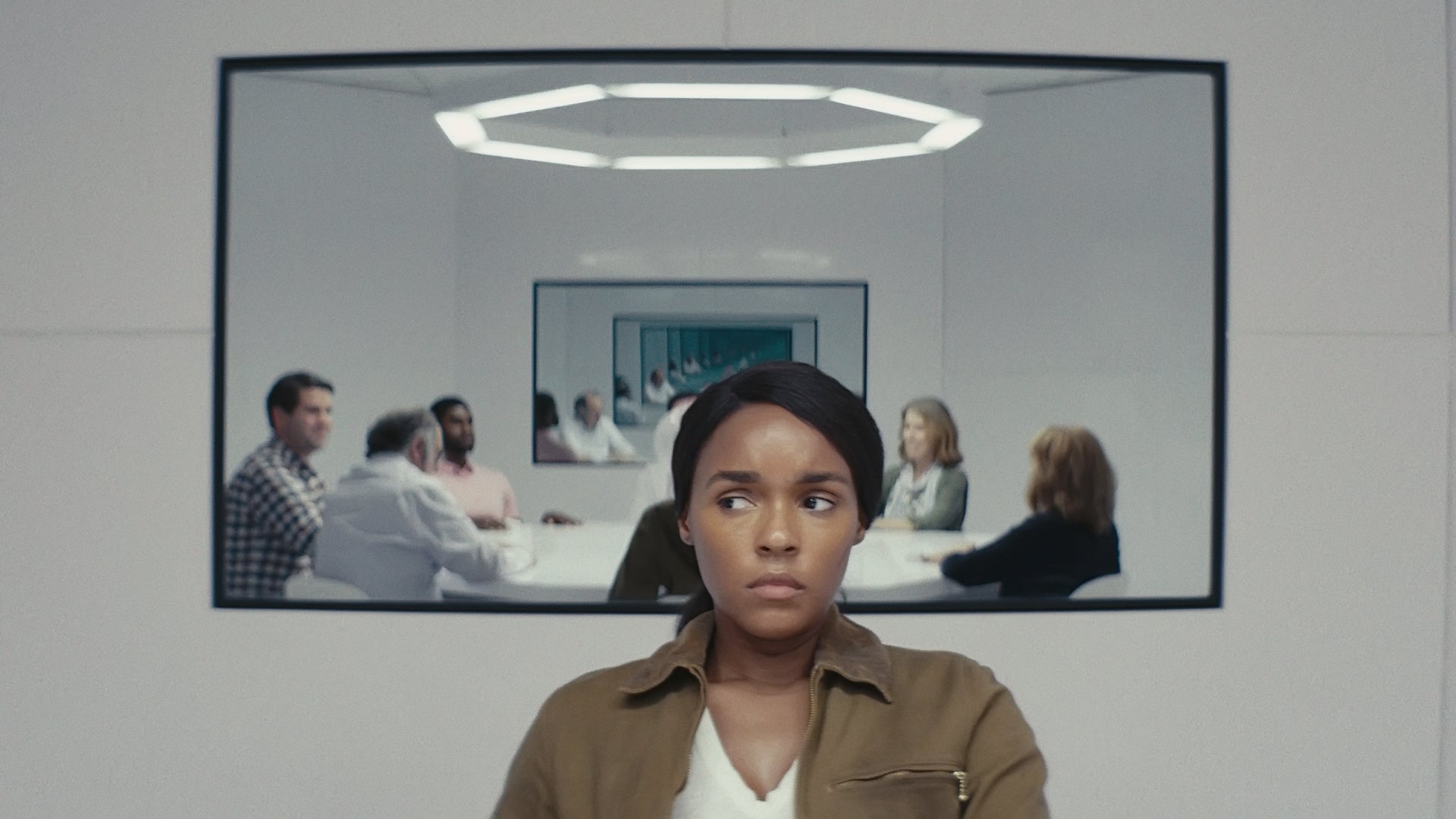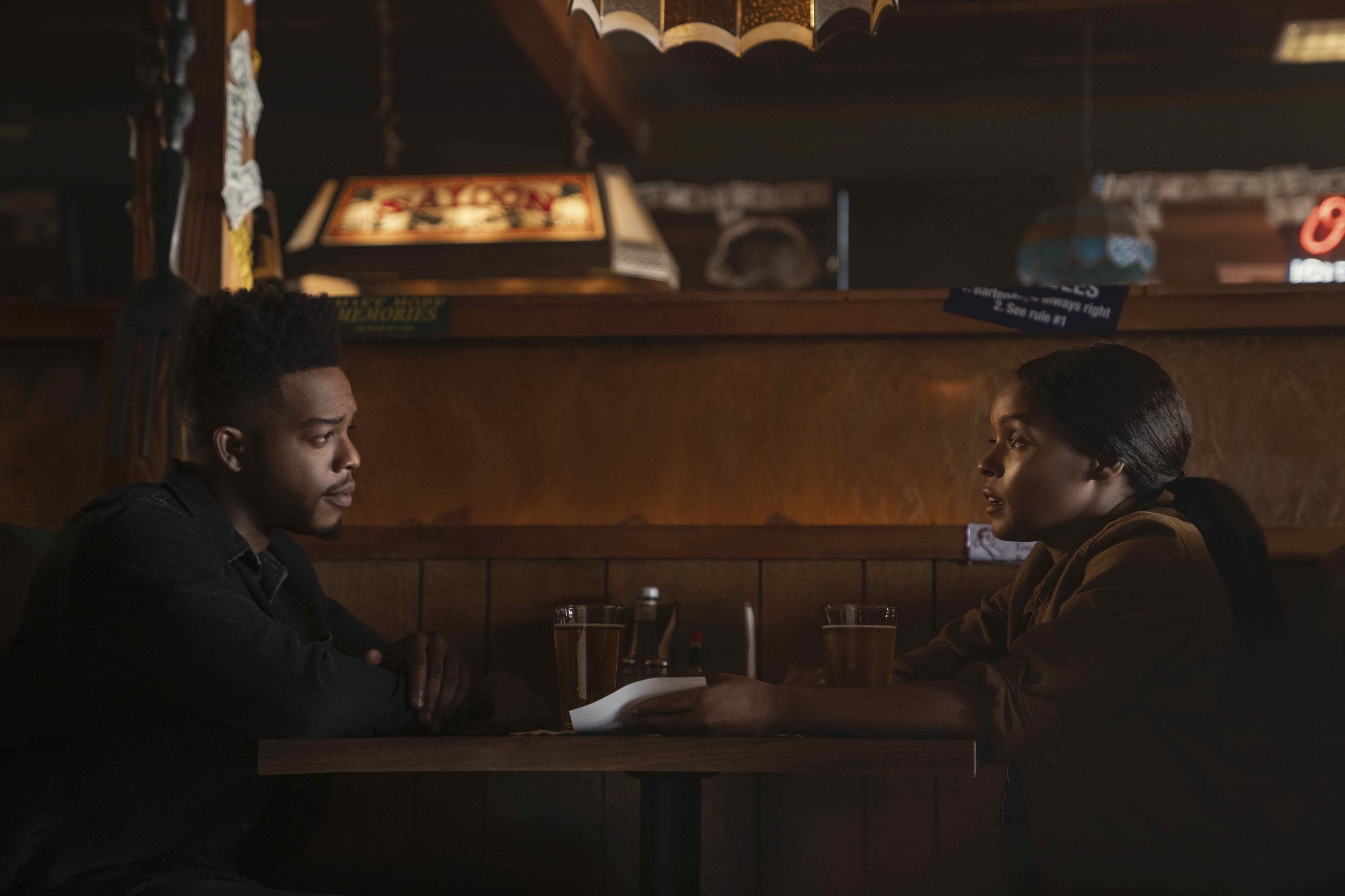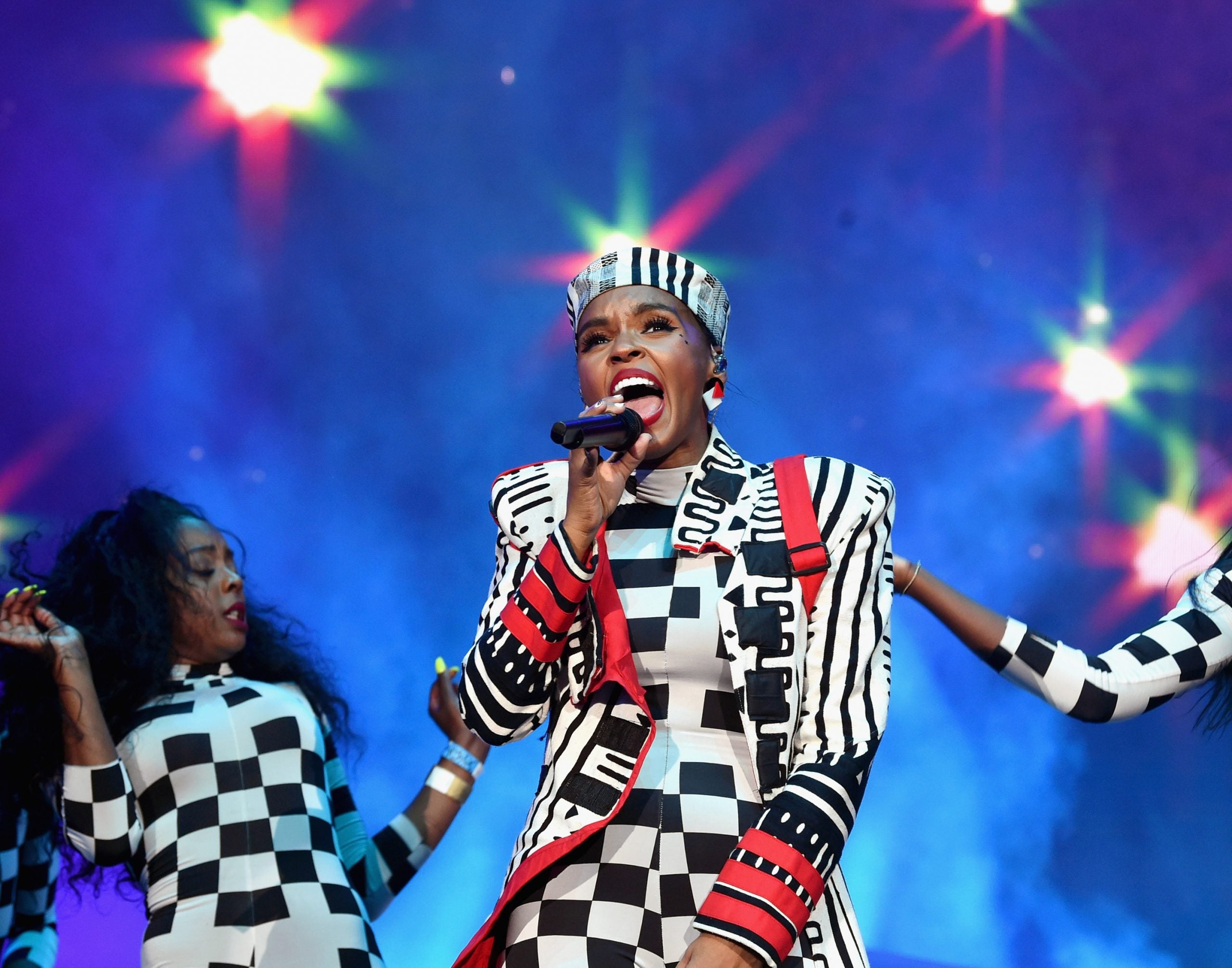You know the world is truly in disarray when the queen herself, Janelle Monáe, has been knocked off her game during the pandemic lockdown. “I don’t know the time or who I am,” she confessed to ESSENCE. “Where I am? What’s going on? Am I actually in reality? Am I in a void? Am I in an alternate universe?” It’s pure coincidence that her latest alter ego, Jackie, is asking herself the same questions.
In Homecoming, Amazon Studio series returning May 22, Monáe plays Jackie, a veteran who we meet just as she’s waking up on a boat in the middle of nowhere. She has no recollection of how she got there, who she is and where she’s been.
Through flashbacks, we see her as a confident professional and Audrey’s loving girlfriend. But as she struggles to investigate her truth in the present day, she’s led to Geist Group, which fans of season one will recognize as the epicenter of mind control that had Walter (played by Stephan James) spinning.

From her Los Angeles residence, where she’s been trying to make sense of a real-life crisis, Monáe talks to us about anchoring the hit drama (which starred Julia Roberts last season), reckoning with the unknown both on and offscreen, coming to terms with her vulnerability and giving power to the people.
ESSENCE: It’s fitting you’re playing a woman who is also struggling with her identity in a time of crisis on Homecoming. Is that what drew you to the character and the series?
JANELLE MONÁE: I was a fan of the podcast and season one. I saw an opportunity as a Black woman to lead a television show. And not just any TV show, but one that has been innovative in the way it’s shot—from the cinematography to the zoom in on the details and the nuances. It has Hitchcockian suspense to it. The shortness of the episodes. I love the score. I said, if they are able to bring over all the things I love about season one, then I’m in.

When I read the script for season two, it exceeded my expectations. We have Chris Cooper and Joan Cusack, who are legendary. I was able to work with Hong Chau [who plays Audrey] and Stephan, who I think the world of, and had Julia Roberts come on to executive produce. How can you say no to that?
ESSENCE: What kind of preparation did you do to get into the mind of Jackie, who doesn’t always have a clear grasp of her identity?
MONÁE: Jackie is an ex-veteran, so I had to go online and research all the veteran jargon and code words. I also had to watch films, like Memento and The Bourne Identity, which deal with memory loss. I watched the Nicole Kidman’s Before I Go to Sleep, where she wakes up every morning and doesn’t know who she is and is trying to uncover her truth.
I still identify as free-a** mother**ker. That will never stop.
Janelle Monáe
ESSENCE: You’ve once identified as a “free-a** motherf**ker.” What are your thoughts on the mental bondage that Jackie’s in throughout a lot of the season?
MONÁE: I still identify as free-a** mother**ker. That will never stop. Jackie is trying to uncover her truth and identity. It’s scary watching somebody who doesn’t know who she is and has to listen to strangers manipulating [her truth]. She doesn’t start out this way. She was absolutely a strong, bold survivor. Somehow along the way, she got to a place where she wakes up in the middle of this boat. We’re trying to uncover that mystery.

ESSENCE: Jackie and Walter are both grappling with their sense of freedom since he’s managed to escape Geist while she is flailing in the thick of it. How would you describe their relationship?
MONÁE: She and Walter realize that they are more alike than they are different. They are both veterans and crossing paths in search of the truth about who they are when they discover a link to Geist. I think Walter has a lot more agency this season. It’s interesting to watch him become more ambitious about freeing himself from the lies. We have some intense scenes… WHEW!
ESSENCE: How has being an artist and a free-a** mother**ker helped you investigate your own truth?
MONÁE: I’ve realized that I could do more than I thought I could, but even I have a limit. Last year, we were at the Grammys with Dirty Computer and performing, which was fun but exhausting mentally. Then we did Coachella for two weekends along with everything in between that’s life. Then I was filming Antebellum in May for two months. Then I went on tour for two months right after that. Then I left Japan and came to L.A. to film Homecoming for two months. Looking back on it, I kind of want to slap myself for not allowing myself to have a small break in between.

I also realize that health is extremely important. I was diagnosed with mercury poisoning, with high levels of it inside me, maybe the same week I started filming Homecoming. So, throughout the whole filming, I was not completely myself. It added to my character’s choices and nuances in my eyes and my face and in my body. I didn’t have to fake most of my disorientation because the mercury messes with your nervous system. So, I just leaned into it. I said I have to take care of my body. I am allowing myself to take time and monitor my health. This year could have been completely different for me if I didn’t catch it.
ESSENCE: We’re also grateful you did and that you’re focusing on your health. How has your sense of freedom changed amid the lockdown?
MONÁE: I watch and write a lot of science fiction to deal with this pandemic, which is a scary thing. I didn’t think we would really be in the middle of a pandemic where people walk around in masks. You can’t touch people. You can’t trust people. Families are not able to see their loved ones pass on. We’re dealing with an administration who’s putting capitalism before the health and well-being of this country. So, I’m sad and angry. I also feel hope in our communities. We are coming together and have many heroes. The doctors, nurses, scientists, and the essential workers are coming together to help us. I mean, humanity. I don’t think we could have depended on this administration. It’s going to have to be the people that save the people.
Candice Frederick (@ReelTalker) is a New York-based film and TV critic.


